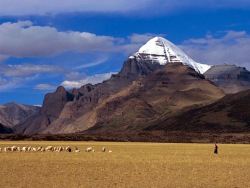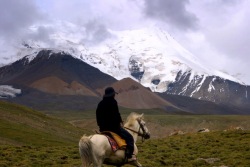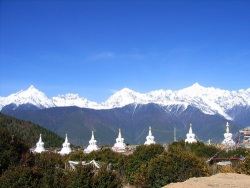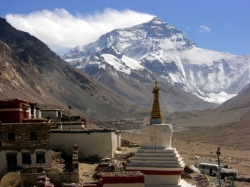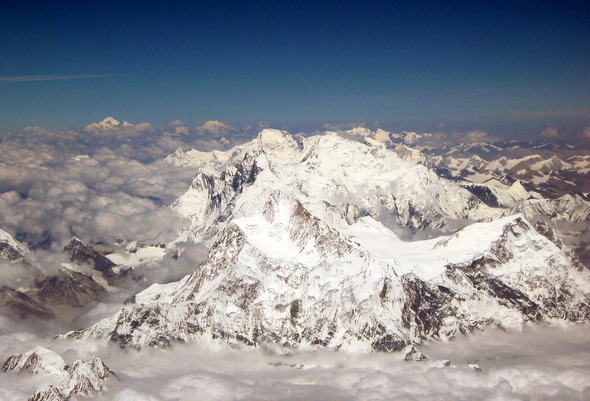
For centuries, Tibetans have been traveling to holy mountains as an act of pilgrimage. In Buddhism, pilgrimage refers to the journey from ignorance to enlightenment, from preoccupation with material concerns to a deeper awareness of the interconnectedness of all life. In Tibetan, the word for pilgrimage, nekhor, means to circle around a sacred place. Through circling holy sites, pilgrims can accumulate merit and come into contact with the sacred energies and liberating powers.
Spread across the Tibet, these four peaks are among the holiest mountains on the plateau. Tibetan pilgrims regularly journey to these sites, sometimes prostrating the entire way. Whether you are a devout Buddhist, an adventurous trekker, or just someone looking for an alternative vacation, these sacred places are bound to leave you with a deep impression of the incredible beauty of the remote corners of Tibet.
_____________________________________________________________________________________
Mt. Kailash
Known as the “Precious Jewel of Snows” in Tibetan, Mt. Kailash is revered as the mythical center and birth place of the entire world. It is said that if one does 108 circumambulations, one will reach enlightenment. The great Tibetan poet-saint Milarepa once declared, “There is no place more powerful for practice, more blessed, or more marvelous than this. May all pilgrims and practitioners be welcome!”
Mt. Kailash, located in Western Tibet (Ngari), can be reached by vehicle from Lhasa. The trek takes 3 days, and starting from Lhasa, the entire journey takes about three weeks. See an itinerary…
_____________________________________________________________________________________
Mt. Amnye Machen
The symbol of the Eastern Tibet, Amnye Machen has long been considered a sacred mountain and a place of pilgrimage. Nestled deep in the heart of Amdo, the mountain is surrounded by nomadic grasslands. In the past, up to 10,000 Tibetans would make the 120-mile circumambulation of the mountain each year. The first European explorers described it as one of the great geographical discoveries of the twentieth century.
Mt. Amnye Machen, located in Amdo (Qinghai), can be reached by vehicle from Xining. The trek takes 7-10 days, and starting from Xining, the entire journey takes about two weeks. See an itinerary…
_____________________________________________________________________________________
Kawa Karpo
Kawa Karpo, one of the holiest snow mountains in Tibet, is said to be the spiritual home of a warrior god. According to the myth, a Buddhist deity named Khorlo Demochok battled the Hindu god Shiva, and won. As a result of the victory, all places deemed sacred to Shiva, including Kawa Karpo, became sacred to Khorlo Demchok. Raved by early western visitors as a paradise, the pilgrimage around Kawa Karpo includes both holy sites and beautiful vistas.
Kawa Karpo, located in Kham (northern Yunnan), can be reached by vehicle from Chengdu or Kunming. The trek takes about 12 days and the entire journey lasts around two to three weeks. See an itinerary…
_____________________________________________________________________________________
Mt. Everest
Regarded by Tibetans as the “Mother of the World,” Everest was first summited by Tenzin Norgay and Edmund Hillary in 1953. The subject of countless myths and legends, Everest is an increasingly popular place of pilgrimage and destination travel for people from all corners of the globe. The North Face of Everest, located in Tibet, offers stunning views of the mountain.
Everest, located along the Tibet-Nepal border, can be reached by vehicle from Lhasa. A trek from Old Tingri – Everest takes about 4 days, and travels through local villages. The entire trip, starting and ending in Lhasa, takes about two weeks. See an itinerary…
_____________________________________________________________________________________
For more information on trekking and traveling in Tibet, contact us at info@snowliontours.com
